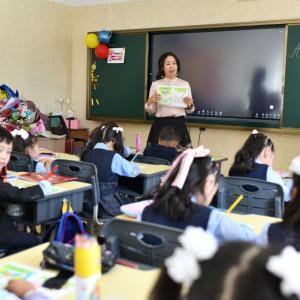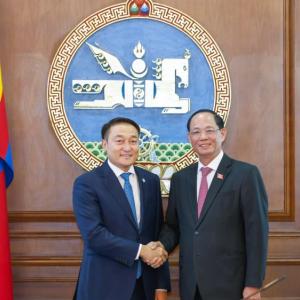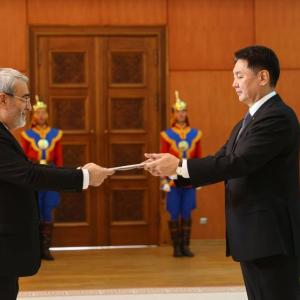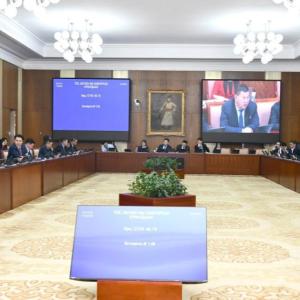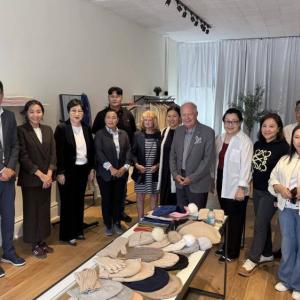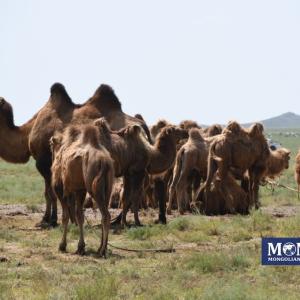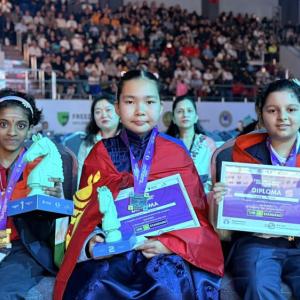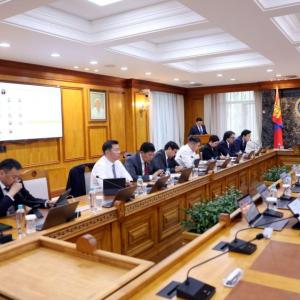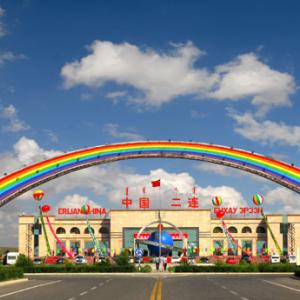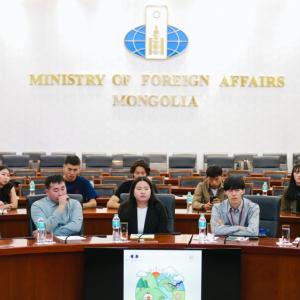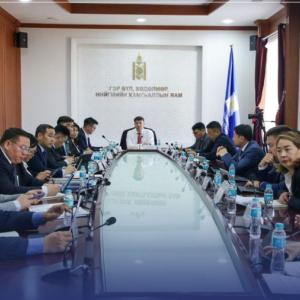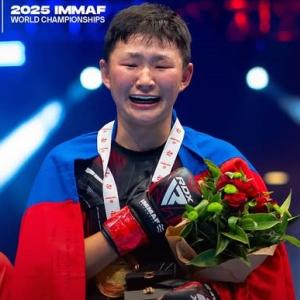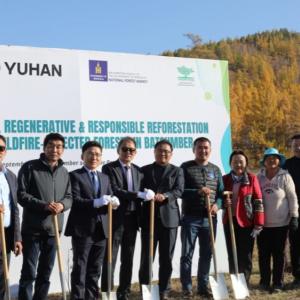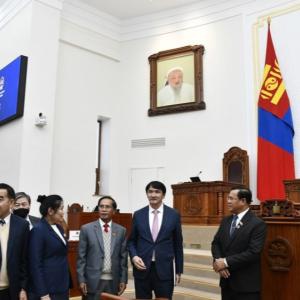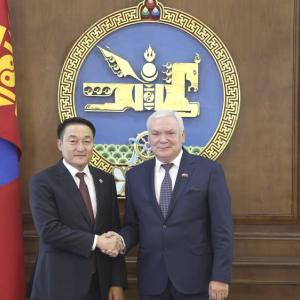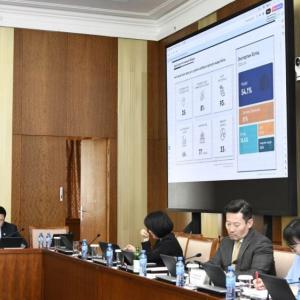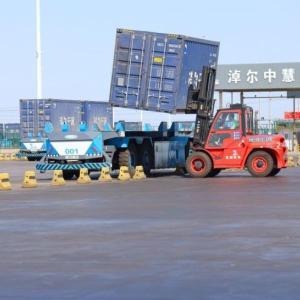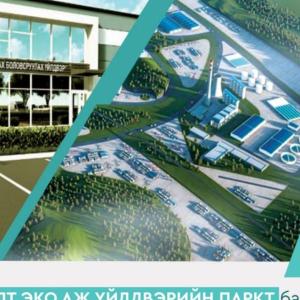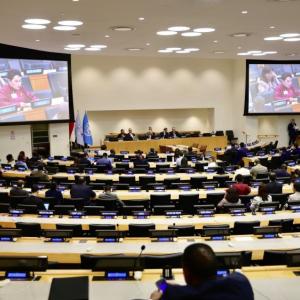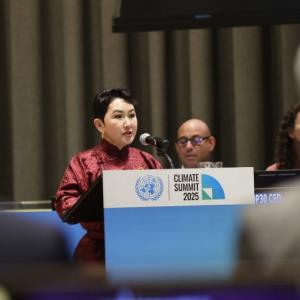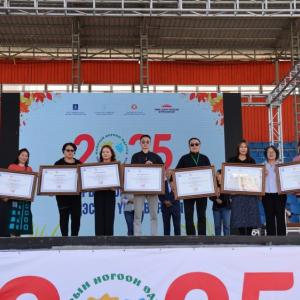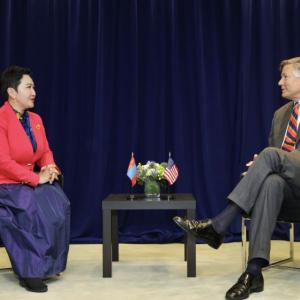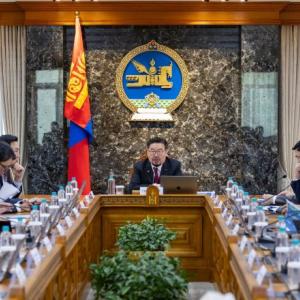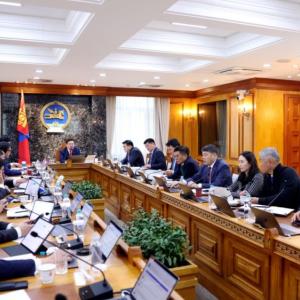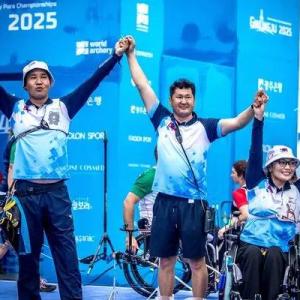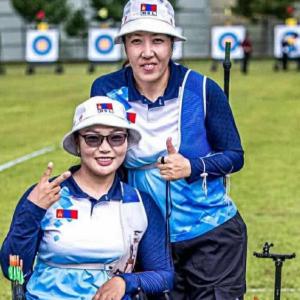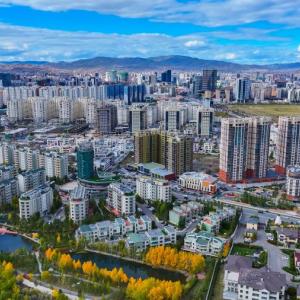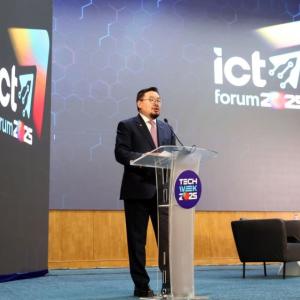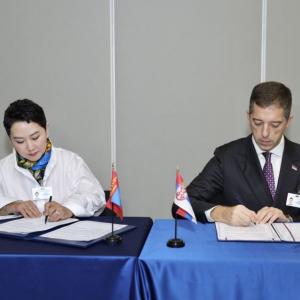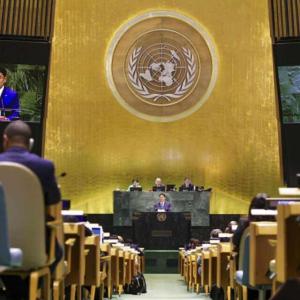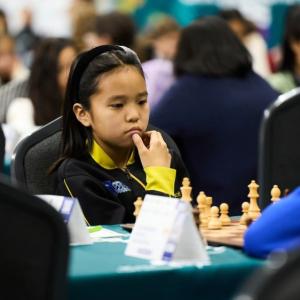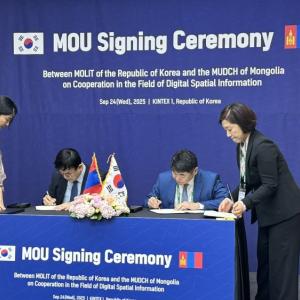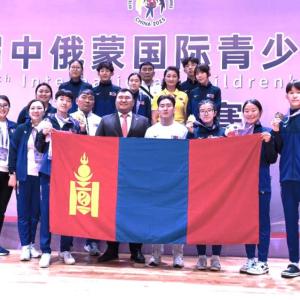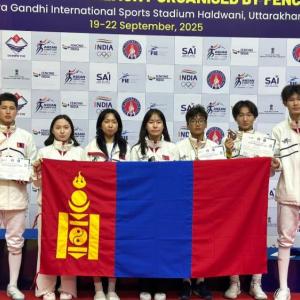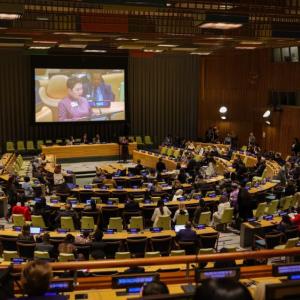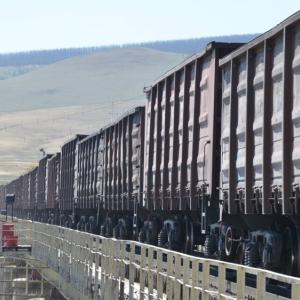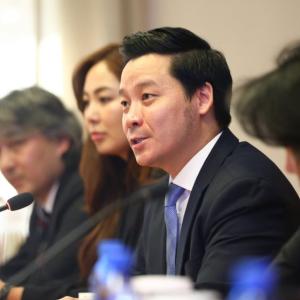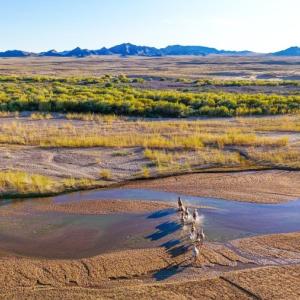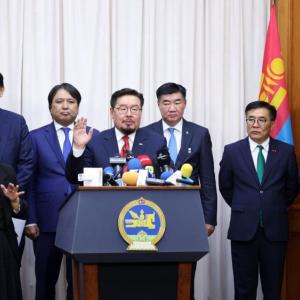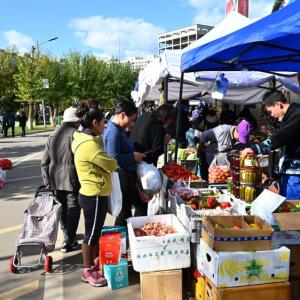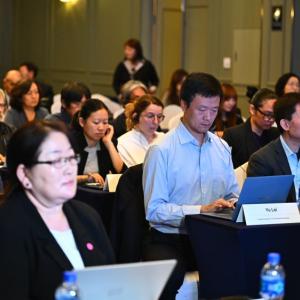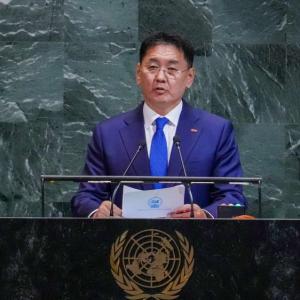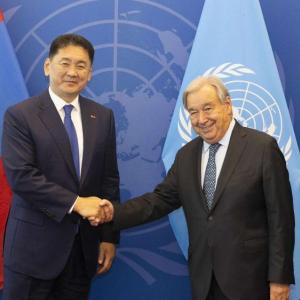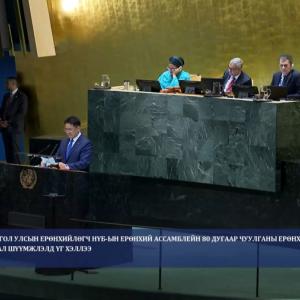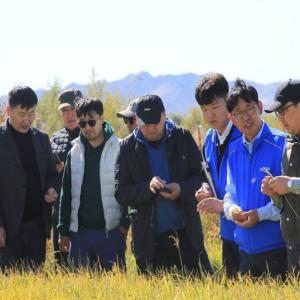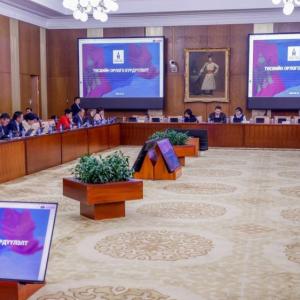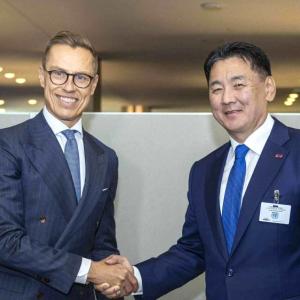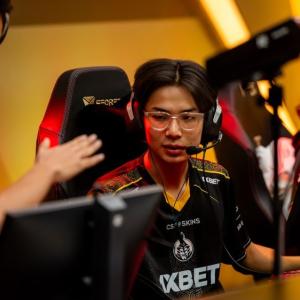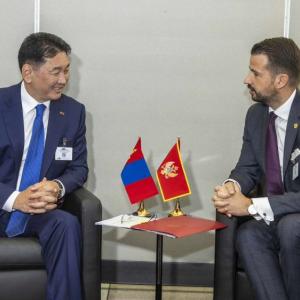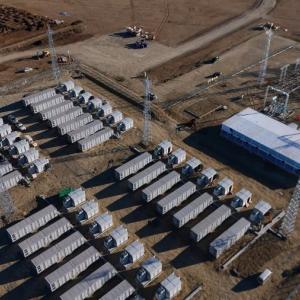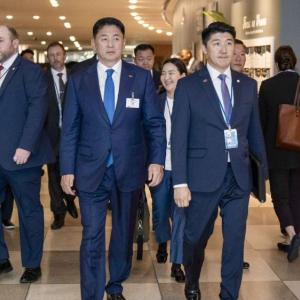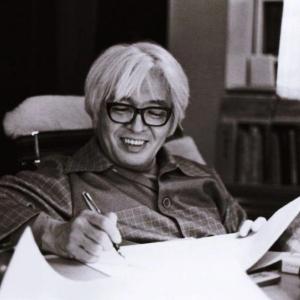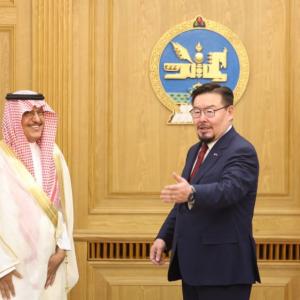Battsetseg Batmunkh: Gender equality is the key to unlocking solutions to the most pressing challenges of our time
Politics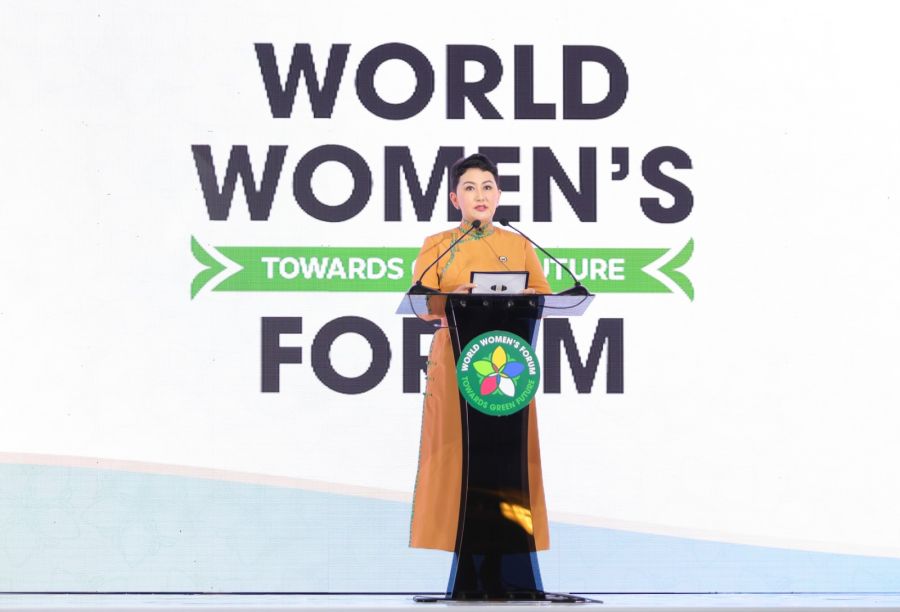
Ulaanbaatar, August 22, 2024 /MONTSAME/. Under the auspices of President of Mongolia Khurelsukh
Ukhnaa, the World Women’s Forum commences in Ulaanbaatar, Mongolia, on August
22, 2024. The Forum, under the theme “Towards a Greener Future” is
co-hosted by the Office of the President of Mongolia, the Ministry of Foreign
Affairs of Mongolia, and the UN in Mongolia.
Minister of Foreign Affairs of Mongolia Battsetseg
Batmunkh, President of the Mongolian Women’s Association B. Oyungerel,
President of the Republic of Slovenia Nataša Pirc Musar, First Lady of the Republic of Kyrgyzstan Aigul Japarova, Vice President of the Lao People's Democratic Republic Pany Yathotou, and other guests gave speeches at the opening of the Forum. We
present the full transcription of the speech of Foreign Minister Battsetseg.
Your Excellency Mr. President,
Honored Guests,
Esteemed Colleagues,
Dear Friends,
It is with great pleasure that I extend a heartfelt
welcome to our distinguished guests, gathered here in the heart of Mongolia for
the World Women’s Forum: Towards a Green
Future.
I wish to convey my profound gratitude to the remarkable
women in our midst, who stand as representatives of thousands of Mongolian
women.
Here in Mongolia, a land steeped in the wisdom of its
legendary queens, we gather with a shared vision: a world where every woman and
girl is empowered to thrive, to lead, and to shape the future of our singular
home—Earth.
Distinguished
guests,
Nearly three decades have passed since the 1995 Beijing
Declaration boldly proclaimed, “women’s
rights are human rights.” Since then, progress has been made—discriminatory
laws have been reformed, gender-based violence is being challenged, and more
women and girls are stepping into classrooms, the workforce, and positions of
power.
Yet, as we celebrate these strides, we must also confront
a sobering truth: progress, though real, has been painfully slow and uneven.
For too many, especially the most marginalized, equality remains a distant
dream. Not a single nation has achieved true gender equality, and as of this
year, it is estimated that it will take 130 years to reach full parity—five
generations beyond the 2030 Sustainable Development Goals
(SDGs).
As the deadline for the SDGs looms closer, we stand at a
pivotal moment in history, facing an array of unprecedented crises that
challenge the very foundations of our world. Widening social and economic
inequalities, escalating violence and conflict, the relentless advance of
climate change, the loss of biodiversity, and the reckless depletion of our planet’s
resources all point to a future teetering on the edge of catastrophe. As
democratic principles weaken and technology deepens social fragmentation, we must
confront the harsh reality: our world is in peril, and the consequences of our
past choices are becoming painfully clear.
These crises are not isolated; they are deeply
intertwined. While global poverty levels have declined, the chasm of inequality
continues to widen. Our planet, once abundant, now groans under the weight of
human excess, with climate change and environmental degradation threatening not
only the survival of humanity but countless other species that share our home. In
the face of these daunting realities, we must embrace a vital truth: we cannot
overcome these crises, nor save the future of our planet, without the full
empowerment of women and gender equality.
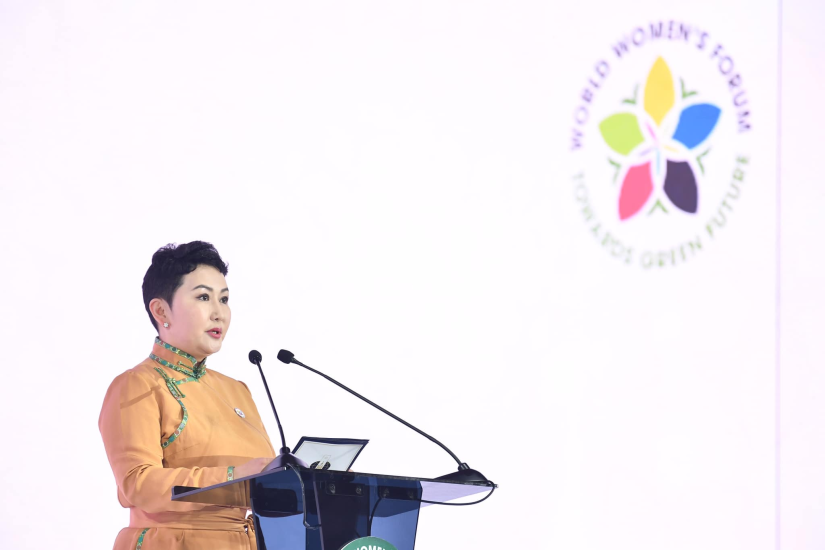
Women are not just half of humanity; they are the
backbone of families, communities, and economies. Their perspectives, wisdom,
and leadership are essential in navigating the complex challenges we face. Yet,
for too long, women have been marginalized, their voices silenced, their
contributions undervalued. This must change, for it is only by unlocking the
full potential of women that we can hope to build a more just, equitable, and
sustainable world.
The discrimination that women have endured for centuries
will not vanish simply because we wish it to. The path forward demands a
fundamental rethinking of our values, systems, and priorities. It calls for
women to be at the forefront of decision-making at all levels, from the
grassroots to the highest corridors of power. We need women’s voices leading
the charge for climate action, social justice, the protection of human rights,
and the preservation of our planet.
When women are empowered, societies are more resilient, economies stronger, and peace more sustainable. Gender equality is not just a goal in itself; it is the key to unlocking solutions to the most pressing challenges of our time.
As we look to the future, let us commit to this truth: we
cannot afford to leave anyone behind. The road ahead will be difficult, but it
is a journey we must undertake together.
Our shared goal is to eliminate gender inequality and
create opportunities for girls and women to take on leading roles across all
social and political spheres. I would like to express my
profound gratitude to His Excellency, the Honorable President of Mongolia, Mr.
Khurelsukh, for his unwavering support and invaluable contributions to this
noble cause.
I also would like to express my sincere gratitude to all
co-organizers, UN-Women, UN Resident Coordinator’s Office in Ulaanbaatar, UN
organizations for your valuable support in preparing this Forum.
The United Nations
Charter enshrines the principles of respecting human rights and fundamental
freedoms for all individuals, without discrimination, as a guiding force for
policies and actions. It is important to recognize that the Commission on the
Status of Women (CSW) plays a pivotal role in advancing gender equality. Today,
Mongolia proudly reaffirms its commitment to these principles and to the vital
work of empowering women worldwide.
As a nation with a long and proud history, where women
have played equally important roles as men in governing a vast empire with
diverse peoples and cultures, Mongolia has much to offer the world. It was the
queens, daughters, and mothers of Chinggis Khan and his royal family who left
an indelible mark on history as sources of profound wisdom, promoting peace,
the flourishing of trade, the exchange of ideas, religious tolerance, and the
championing of arts and culture. Even to this day, we Mongols aspire to live in
harmony, not in conflict, with our mother earth, as did our nomadic ancestors
for more than two millennia.
Mongolia is a country with a long tradition of respecting and promoting human rights, freedom, justice, and gender equality. As a nomadic people, the essence of our way of life, our ultimate philosophy, is centered around the concept of green development—loving and protecting nature. Thus, we have much to offer the world in terms of the future of green development and ideas to enrich global discourse on gender issues.
I believe that at this forum, Mongolia will have the opportunity, once again, to demonstrate its capacity as an international platform for discussing and resolving a wide range of issues—from gender equality to the United Nations' Sustainable Development Goals—as well as its strong desire and commitment to contributing to the maintenance of international peace and stability.
Distinguished
guests,
Over the next few days, we will engage in wide-ranging
discussions on various issues related to gender equality and its intersection
with sustainable development. Additionally, we will explore the challenges and
opportunities surrounding gender equality in the economy, particularly in the
digital economy.
I want to emphasize that your active participation and
the insights you bring are invaluable contributions to these discussions. I am
confident that the outcomes of this forum will be successful, as we all share
the belief that the involvement of women at the decision-making level is
crucial to creating a brighter and more equitable world.
As we embark on these broad discussions, I urge you to recognize
women’s education as a fundamental priority in addressing all these challenges.
Let women and girls' education be the starting point, the first course of
action, upon which all subsequent efforts are built. I firmly believe that many
of the challenges women face worldwide—the inequitable opportunities and the
struggles to overcome systemic barriers—are closely tied to the level of
education they receive. Therefore, I encourage you to place women’s education
at the forefront of our discussions and seek solutions through this critical
lens.
Our discussions will culminate in a final outcome
document, tentatively titled the "Ulaanbaatar
Declaration: Towards a Sustainable Future." Let it be known that the
Ministry of Foreign Affairs reaffirms its commitment to thoroughly incorporate all
of your valuable insights.
I extend my heartfelt gratitude to our esteemed guests, and
to the Mongolian women who are actively participating in this forum. I wish you
all great success in your endeavors throughout this forum.
Thank you for your attention."
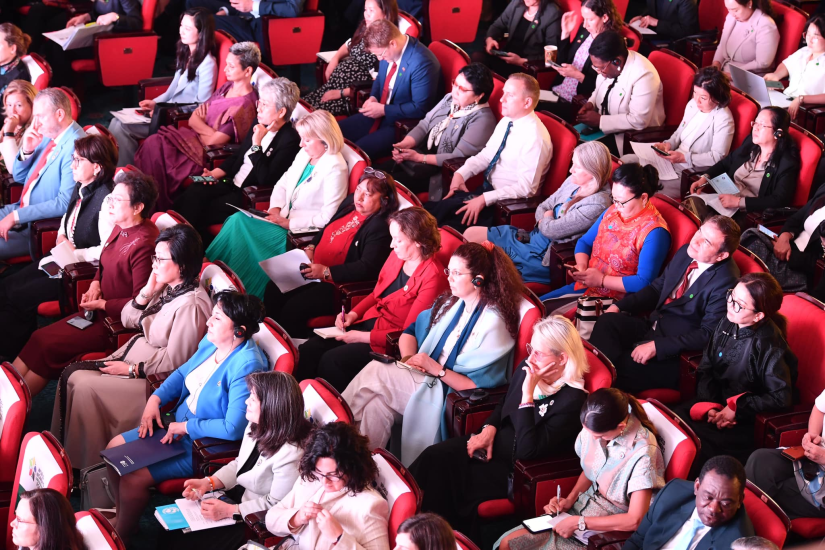

 Ulaanbaatar
Ulaanbaatar

